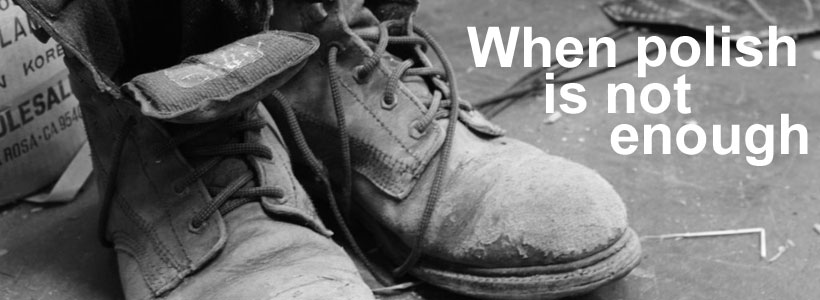How to choose the right safety footwear
3 Comments5 August 2016 | Geoff
When it comes to kitting yourself out for work, choosing the correct footwear is vital. Picking an appropriate pair of safety boots or shoes for you and your job makes a real difference to your day. Here's a quick guide to help you find the right pair.
Take your time
First of all, take your time. So many people just grab the first pair they see, thinking 'Oh, they're just work boots' and end up with badly fitting, sub-standard footwear. Remember, you will probably be spending more time in these shoes than any others.

Read reviews
Always do a little research. The web is packed with reviews on virtually everything. Assess the pros and cons of each product.
Do they meet the correct legal standards?
This is an over-riding factor in choosing workwear of any kind. Is there any legislation that your footwear has to comply to? You will find this information clearly stated in our product descriptions.
Comfort
Comfort is all important. The most basic PPE footwear can be a little stiff and heavy, and lacking in padding. While this is fine for jobs requiring short-term wear and relative immobility, if you're on your feet a lot of the time, you need something a little more specialised.
Medical considerations
Do you have any medical issues that need taking into consideration? This includes ailments such as arthritis, diabetes, and bunions.
Toe protection
Virtually all safety footwear is fitted with toe protection, but these come in a variety of strength ratings. Assess your risk and choose accordingly. Bear in mind that some jobs require non-metallic workwear.
Midsole protection
Many work boots feature midsole protection to guard against extremely painful puncture injuries from beneath. If you work on building sites where this is a realistic risk, make sure you choose this feature.
Antistatic protection
When moving around on certain floor types, a static charge can build up within the body. Antistatic soles help to dissipate this energy before you get a shock.
Water resistance
If you intend to be working outside, you will want a good level of water resistance from your footwear. This is clearly indicated in our descriptions. Also assess the sole to ensure you will be getting an adequate level of slip protection.
Chemical resistance
Whether it be simple cleaning products or highly toxic waste products, if you're working with chemicals, always choose a substantial pair of high cut boots that are sufficiently rated for your safety.
Insulation
Will you be working in very hot or cold conditions? Choose your footwear accordingly. Some boots offer minimal insulation from cold, while others, such as many rigger boots, are fully lined with extremely warm materials.


















